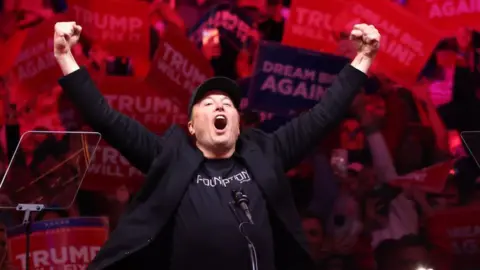Elon Musk Accuses Trump of Betrayal: “Without Me, Trump Would Have Lost the Election”
Tensions between Elon Musk and President Donald Trump have erupted into a public feud, with Musk accusing Trump of disloyalty and claiming credit for his electoral success. The billionaire entrepreneur alleges that the Trump administration has deliberately targeted his companies—SpaceX, Tesla, and others—through punitive measures that threaten their financial stability. According to Musk, these actions include the cancellation of critical government contracts, sweeping tariffs on supply chains, and the elimination of electric vehicle (EV) subsidies, all of which disproportionately impact his businesses.

The conflict reportedly stems from the Trump administration’s decision to terminate several U.S. government contracts with Musk’s companies, including high-value NASA agreements with SpaceX. Sources indicate that these cancellations could cost SpaceX billions in revenue, jeopardizing its role as a leading contractor for space exploration. Additionally, the administration has imposed broad tariffs on supply chains critical to Musk’s enterprises, particularly those reliant on components sourced from China. Tesla, which depends heavily on Chinese manufacturing for batteries and other parts, faces significant cost increases that could disrupt its production and profitability.
Perhaps the most contentious move is the proposed elimination of EV subsidies, a policy Musk claims will devastate Tesla’s bottom line. Analysts from JPMorgan estimate that the removal of a $7,500 tax credit for buyers of certain Tesla models and other EVs, set to take effect by the end of 2025—seven years earlier than planned—could result in a $1.2 billion profit loss for Tesla. This policy shift is part of a broader tax bill championed by Trump, which Musk has publicly criticized as fiscally irresponsible.
Since stepping down from his role as head of the Department of Government Efficiency (DOGE), Musk has intensified his attacks on Trump’s legislative agenda. He argues that the tax bill, which he sarcastically described as “big and beautiful,” will balloon the U.S. federal deficit, contradicting the cost-cutting mission he pursued at DOGE. Musk claims he was blindsided by the bill’s details, asserting that it was rushed through Congress in a late-night session with little transparency. “This bill was never shown to me, not even once,” Musk stated. “It was passed so quickly in the dead of night that hardly anyone in Congress had time to read it.”
In response, Trump expressed frustration with Musk’s criticism, suggesting that the tech mogul was fully aware of the bill’s implications. “I’m very disappointed because Elon knows more about this bill than most people in this room,” Trump said during a press conference. “Suddenly, he has a problem when he realizes we’re cutting the EV credits.” Trump’s remarks imply that Musk’s objections may be driven by personal financial interests rather than principled concerns about fiscal policy.

Musk, however, denies any personal motives, insisting that his criticism is rooted in a lack of transparency and poor governance. “I had no idea about the specifics of this tax bill,” he reiterated. “To claim otherwise is dishonest.” He further argued that the abrupt policy shifts undermine innovation in industries like electric vehicles and space exploration, which he views as critical to America’s future.
The public spat marks a dramatic deterioration in the relationship between Musk and Trump, who were once seen as allies. Musk’s claim that Trump owes his election victory to his support has added fuel to the fire, with the billionaire asserting, “Without me, Trump would have lost the election.” As both sides dig in, the fallout from this feud could have far-reaching implications for Musk’s companies and the broader U.S. political and economic landscape. (Word count: 600)
